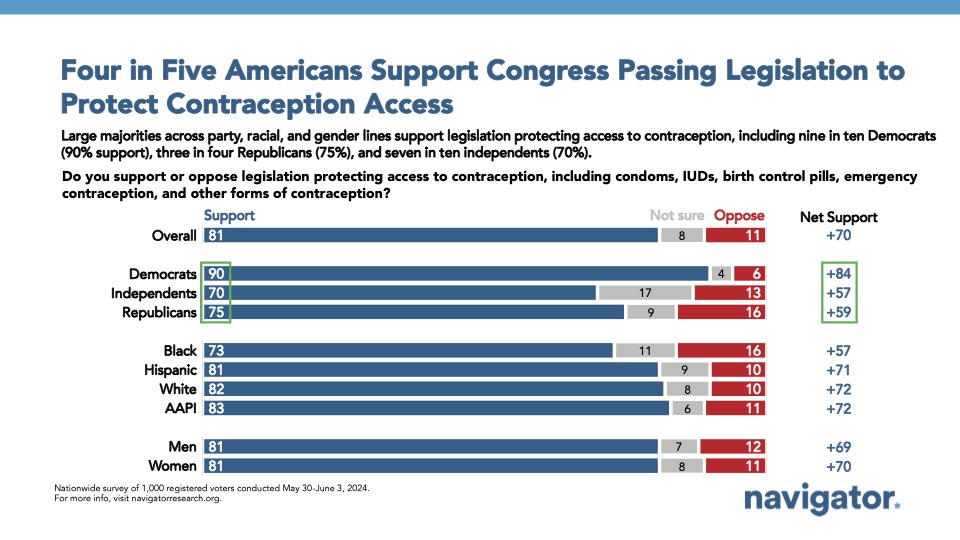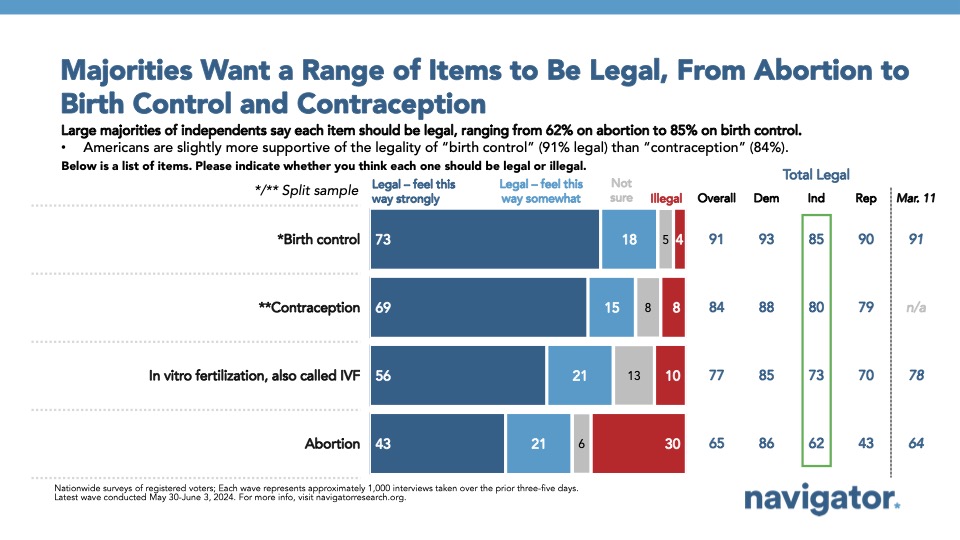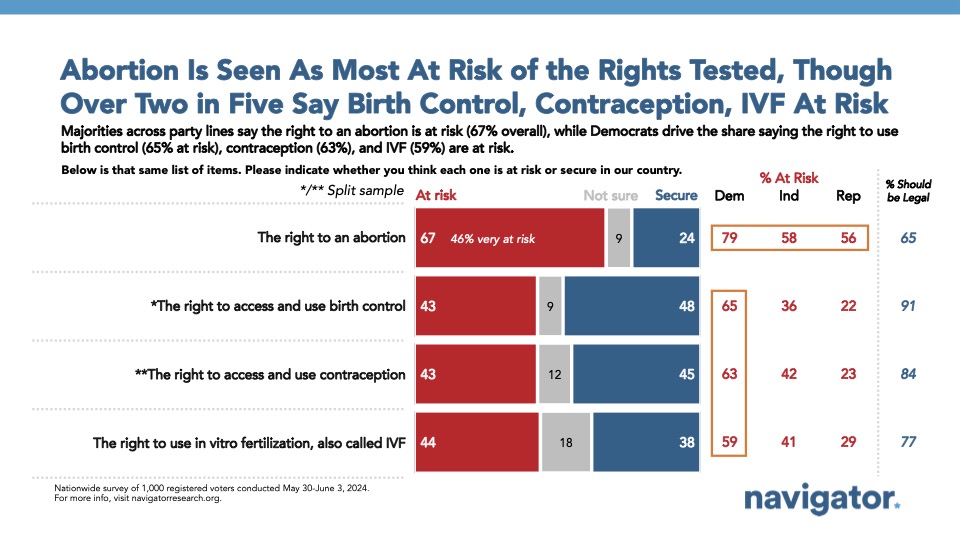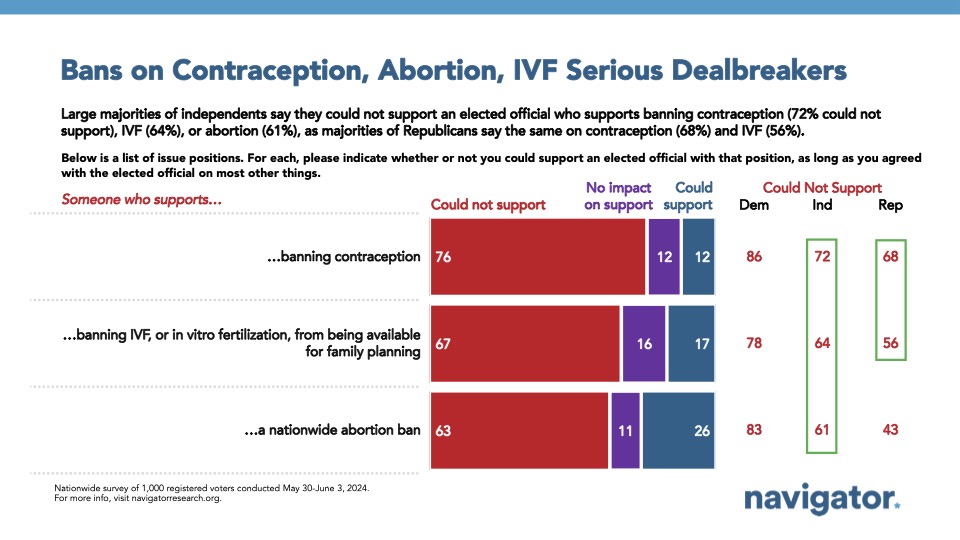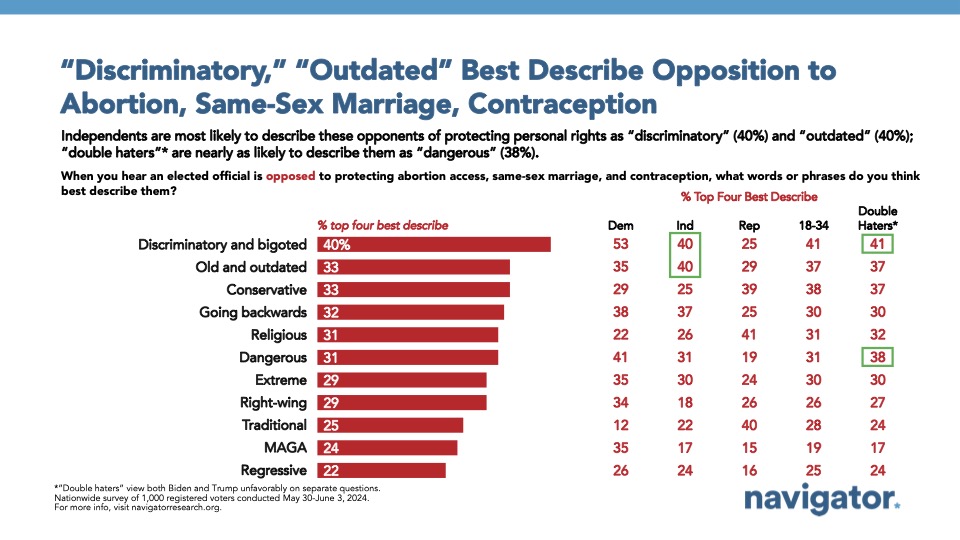Poll: Access to Contraception in the U.S.
This Navigator Research report contains polling data on the latest perceptions of abortion and contraception in the United States and which rights are seen as at risk and should remain legal. We also look at how Americans would view elected officials who support taking away the rights to access contraception and abortion.
Four in five support specific legislation that would protect access to contraception.
Despite Senate Republicans blocking legislation that would protect access to contraception, overwhelming majorities across partisanship support this kind of legislation. 81 percent of Americans, including 90 percent of Democrats, 75 percent of Republicans, and 70 percent of independents, support legislation “protecting access to contraception, including condoms, IUDs, birth control pills, and emergency contraception pills,” while only 11 percent are opposed to such legislation. Critically, four in five Americans who are unfavorable to both President Biden and former President Trump support legislation that would protect access to contraception (83 percent).
- Three in four Americans who identify as MAGA Republicans support legislation that would protect access to contraception, including condoms, IUDs, birth control pills, and emergency contraception (75 percent).
Contraception is widely popular, however, more Americans believe it should be legal when framed as “birth control.”
Vast majorities of Americans believe that contraception, in vitro fertilization (IVF), and abortion should all be legal. Nine in ten Americans believe birth control should be legal (91 percent), including 93 percent of Democrats, 90 percent of Republicans, and 85 percent of independents. Similarly, nearly four in five believe IVF should be legal (77 percent), and two in three believe abortion should be legal (65 percent). That being said, Americans are most likely to believe the right to an abortion is at risk in the United States (67 percent), while a smaller plurality believes the right to IVF is at risk (net -6; 38 percent secure – 44 percent at risk). The right to access and use birth control is viewed as more secure, with pluralities by a narrow margin believing the right is not at risk (net +5; 48 percent secure – 43 percent at risk).
- A plurality of Americans under the age of 35 believe the right to access and use birth control is at risk (48 percent at risk – 43 percent secure). Seven in ten younger Americans also believe the right to an abortion is at risk (71 percent).
- While both are overwhelmingly popular, Americans say they believe “birth control” should be legal (91 percent, including 73 percent who feel this way strongly) by 7 points more than they believe “contraception” should be legal (84 percent, including 69 percent who feel this way strongly).
A majority of Americans could not support an elected official who supports banning abortion, IVF, or contraception.
Three in four Americans say they could not support an elected official who supports banning contraception (76 percent), including 86 percent of Democrats, 72 percent of independents, and 68 percent of Republicans. By 50 points, Americans say they could not support an elected official who supports banning IVF from being available for family planning (67 percent could not support – 17 percent could support), nor an elected official who supports a national abortion ban by 37 points (63 percent could not support – 26 percent could support).
- When prompted to rank words or phrases that best describe an elected official who is opposed to protecting abortion access, same-sex marriage, and contraception, “discriminatory and bigoted” is the most frequently listed (40 percent), followed by “old and outdated” (33 percent).

